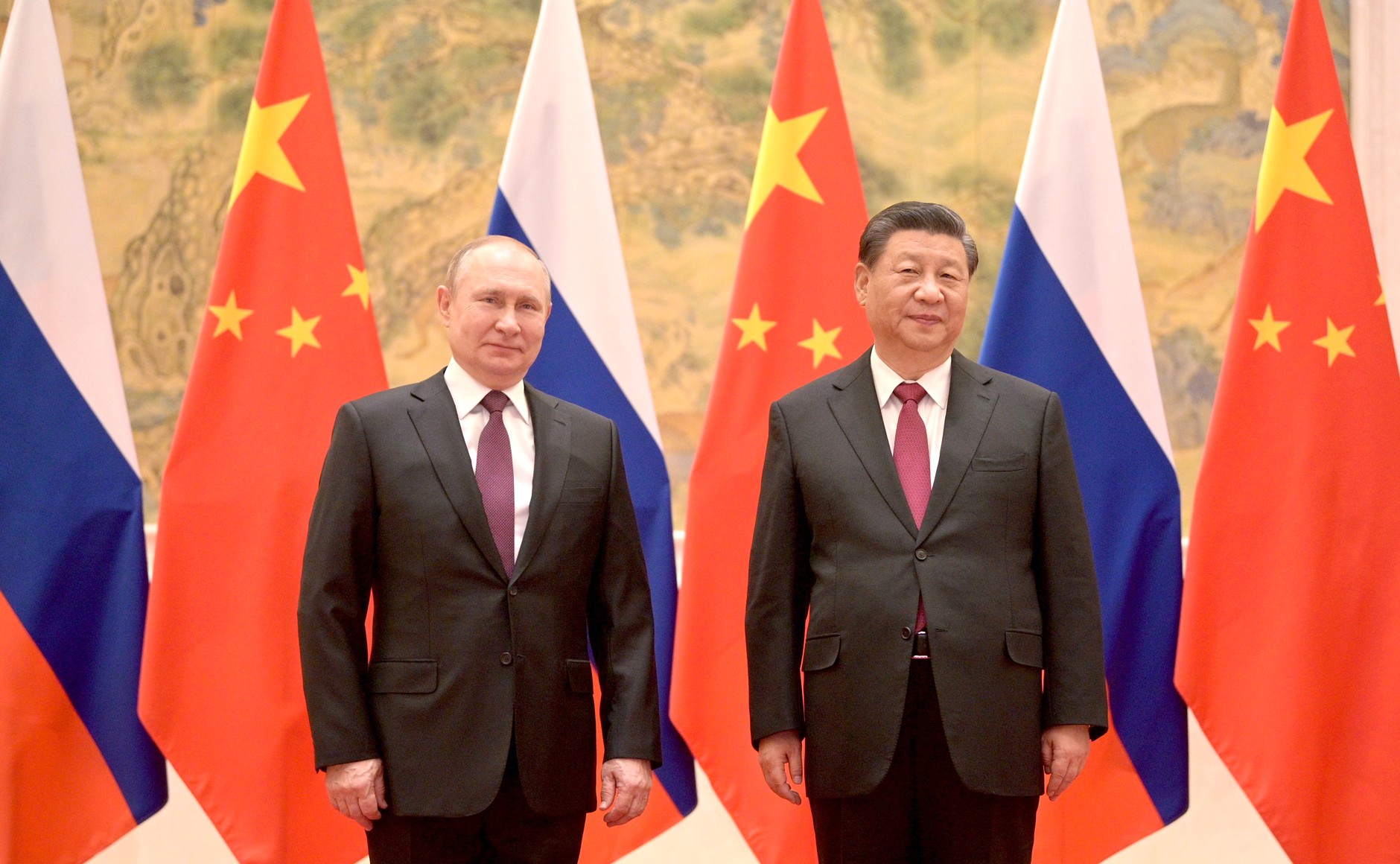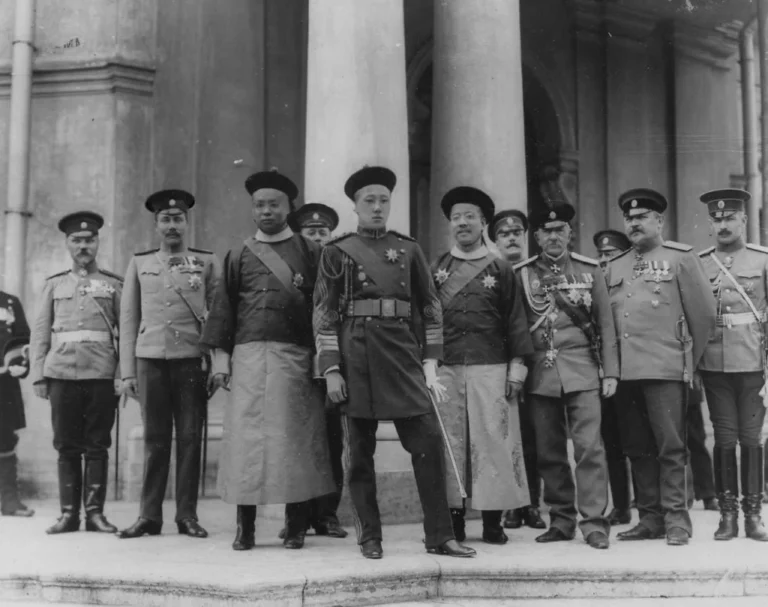
As Russia’s invasion of Ukraine continues, China’s position has been thrust firmly into the spotlight. With the war dragging out longer than anticipated, Beijing finds itself only hemmed further into an increasingly difficult position.
However, more broadly, the war also offers key insights and developments.
Namely, the invasion offers lessons on how the West could respond to China’s potential military expansionism in its own neighborhood. Meanwhile, China’s own geopolitical weight and especially its expanding partnership with Russia has turned Beijing into a potential deal-broker.
China’s Balancing Act
Thus far, China has abstained from condemning Russia’s moves while also eschewing any direct mention of the conflict as an invasion. Beijing also underlined its negative approach to the sanctions regime imposed on Russia by the West. China’s posture is based upon a decades-long expansion of bilateral relations with Moscow, best exemplified by lofty statements and ambitions communicated in a joint declaration on the new era of international relations at the Beijing Olympics.
The support came officially too. China abstained from voting on a UN Security Council resolution condemning Moscow’s actions. China was also among the only five states which withheld from condemning Moscow’s aggression in the United Nations General Assembly. Yet, these developments came at the very beginning of Russia’s invasion. At that stage, the extent to which Russia was unprepared to subdue Ukraine was unclear. As such, many assumed it was unlikely that the conflict would last for more than a matter of days and Russia would be a clear winner.
The ideal scenario for China would have been a swift Russian operation with quick results which would appear more as fait accompli to the West and would dilute the latter’s ability to mount coordinated sanctions and foreign policy responses. Swift victory is perhaps what Putin expected himself when he likely made Xi Jinping privy to his military ambitions before the invasion. On the contrary, Putin’s army got bogged down in Ukraine’s plains, frustrating Moscow’s aims and perhaps also Beijing’s expectations.
Though China has been insistent on describing the relations with Russia as “rock solid”, gradual changes in China’s perception of the conflict are nevertheless taking place. On March 9, China’s Red Cross announced it would provide $791,000 in humanitarian aid to Ukraine. Moreover, insistence on the need to cease hostilities and engage in negotiations has been, rather conspicuously, on the rise in the official Chinese rhetoric.
As the war continues and Russian military atrocities pile up, China has good reason to feel uncomfortable about its image. At present, it is seen in part as the country that failed to prevent the invasion and ensuing death of thousands of Ukrainians, especially as Chinese officials remain publicly ambivalent about the war. Russia’s adventurism presents real foreign policy dilemmas and threatens to irreparably tarnish Beijing’s image as an abettor of the aggressor. As the war drags on, and Russian actions turn increasingly brutal, criticism aimed at Beijing will inevitably grow stronger as well.
Yet, even these concerns have not been enough to prompt a major foreign policy shift. In Beijing’s view, Russia has legitimate security concerns that need to be addressed. It thus echoes similar grievances China harbors when it comes to US involvement in the South-China Sea and its immediate neighborhood. But Beijing has hardly chosen any side. For example, with alleged Russian military and economic requests toward China, it is still unclear whether it was addressed by Xi’s government. At least in one case, Moscow was turned down for its behest to have spare aircraft parts.
Precious Experience
Long-term, however, Russia’s invasion of Ukraine is a development that can benefit China. The West is bogged down in the conflict with Russia and presently has little time and energy to focus on China and the wider Indo-Pacific region.
For China, this is the second grand opportunity it has been offered in the last 20 years. At the turn of the century, America was distracted by terrorist threats and concerns in the wake of 9/11, which then manifested in entrenched military presence across the Middle East and nation-building in Iraq. Amid this hyperfocus on the Middle East, it would be more than a decade before Washington began to adjust its focus on China once again.
With Russia’s military adventurism, Beijing is now presented with yet another opportunity to fly under the radar. The focus on Ukraine offers breathing space to mobilize its resources, and prepare for future economic and, potentially, limited military confrontation with the US and its Asian allies. This could explain China’s vociferous defense of its neutrality. The longer tensions continue, the greater the opportunity for China to raise its international profile and keep the US at bay.
More specifically, the way the West has responded to Russia’s aggression is a precious lesson for Beijing on what might follow if the ‘Taiwan question’ is to be decided forcefully. China would likely face intense economic pressure through sanctions and US’ growing military presence near its borders. Washington’s Asian allies and partners could ramp up their security and military cooperation through QUAD and AUKUS.
The war is also a good experience for China as the country, similarly to Russia, seeks changes to the present global order and has territorial disputes with the neighboring countries. China understands that changes in global order do not take place solely because a rising power upends the existing balance of power by the virtue of the growing economic and military clout. For the power ascent to be successful, rivals should also be kept fighting each other. The US would not be able to rise to the world power status as quickly and effectively as it did in the 1940s had not it been for Europeans undermining each other. Similarly, the Russia-West crisis, especially in the economic domain, dilutes the West’s strength and ultimately helps China.
Whatever the results of the Russian aggression, many facets of the Beijing-Moscow axis are unlikely to remain unchanged. One of them is a military dimension where Putin must be feeling uncomfortable knowing that Xi has now little regard for Russia’s military effectiveness and the Kremlin’s ability to withstand Western pressure. This would further tilt the balance in the bilateral relations definitively in China’s favor. Beijing could rely on greater support from Russia, while Moscow will be increasingly unable to resist Chinese requests to sell its cherished military tech. China could also aim for broad Russian concessions in Central Asia’s security where Beijing has been making inroads into the security area.
Changes are also to be expected in the economic sphere. As the sanctions pressure Russia, Moscow’s pivot to Asia will become more pronounced. Kremlin-linked analysts might be trying to find a positive spin to the crisis in relations with the West, but the political dependence on China will only grow. This will be much to Russia’s detriment to keep the balance in relations with Beijing.
Moreover, even if Russia accepts its subordination to Beijing, China might still be hesitant to help Russia financially because of the fear of sanctions. China’s international payment system will not be of much help either, at least for now, as it depends on SWIFT. Infrastructure projects in Russia’s north where Beijing has had an interest in financing the expansion of the Northern Sea Route could also be stalled.
Beijing’s Big Dilemmas
However, China also sees that while America’s Middle East commitments caused ruptures in the Western unity in previous decades, Russia’s reckless actions at present might push Western institutions and major powers to act in unison across contexts. Reinvigoration of the Western unity is what Beijing fears most as the divisions in the Euro-Atlantic alliance were the crucial factor that allowed China to wedge itself into the European economic market and sow differences between the EU and US.
With a strengthened and unified stance on Russia, China is now worried that a revitalized collective West will also assume a more assertive posture against China. More importantly, this follows China’s recent stumbles in eastern Europe, NATO, and EU framing of China as a distinct geopolitical challenge.
Russia’s invasion also tears apart what China holds most dear, at least officially – Westphalian principles of non-intervention into another country’s internal affairs. Beijing must now square this challenge with its close relations with Russia. This threatens China’s prestige as a champion of new and fairer world order and, worse yet, threatens to erode the facade of its neutrality and non-interventionist economic diplomacy.
In the end, Moscow’s aggression puts Beijing in a difficult position. It does not want to see Russia losing the war, as it will strengthen the West. Beijing is also wary of the conflict turning into a wider global confrontation given the potential security and economic blowback it would not be able to evade. Amidst these considerations, a continuous and long-term Russia-West standoff that would not spill into a ‘hot war’ would be most beneficial to China, offering it breathing space to adjust to new geopolitical realities as the US focuses on regions far from the Indo-Pacific.
Written by
Emil Avdaliani
emilavdalianiEmil Avdaliani is a research fellow at the Turan Research Center and a professor of international relations at the European University in Tbilisi, Georgia. His research focuses on the history of the Silk Roads and the interests of great powers in the Middle East and the Caucasus.


